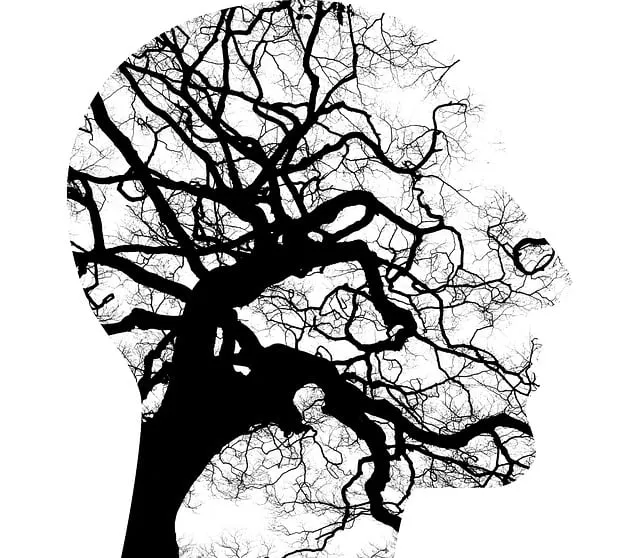Kaiser Permanente's mental health appointment center in Parker offers comprehensive, accessible care through diverse professionals using holistic therapeutic modalities. Evaluating its success involves tracking client satisfaction, retention rates, clinical outcomes (anxiety, depression relief), and self-efficacy measured by tools like the Positive Thinking Mental Wellness Podcast Series. Stakeholder feedback is crucial for continuous improvement, ensuring services meet community needs. The center prioritizes data-driven strategies to refine communication, crisis interventions, and personalized stress management programs, aligning with evolving mental health requirements in Parker.
“Uncovering the success of mental wellness programs demands a multifaceted evaluation approach. This article explores an innovative model, Kaiser Permanente’s Mental Health Appointment Center, and its impact on patient care. By delving into key evaluation metrics, stakeholder feedback, and data-driven continuous improvement strategies, we uncover best practices. Inspired by the Parker method, this comprehensive guide provides insights into enhancing mental health services, ensuring effective support for patients navigating their mental wellness journeys.”
- Understanding Kaiser Permanente's Mental Health Appointment Center Model
- Key Evaluation Metrics for Measuring Program Effectiveness
- Stakeholder Feedback and Satisfaction Surveys
- Continuous Improvement: Data Analysis and Iterative Refinement
Understanding Kaiser Permanente's Mental Health Appointment Center Model

Kaiser Permanente’s Mental Health Appointment Center Model is a structured approach to delivering mental wellness services, focusing on accessibility and comprehensive care. This model involves dedicated centers equipped with diverse healthcare professionals who offer personalized treatment options. By implementing this strategy, Kaiser Permanente aims to address the growing need for mental health support, particularly in urban areas like Parker, where stress management and anxiety relief are prevalent concerns.
The center’s design facilitates a holistic assessment of patients’ mental well-being, incorporating various therapeutic modalities. This inclusive environment promotes patient engagement and adherence to treatment plans, aligning with the broader Mental Health Policy Analysis and Advocacy efforts. By adopting such innovative practices, Kaiser Permanente strives to enhance community mental health outcomes and contribute to the overall resilience of areas like Parker.
Key Evaluation Metrics for Measuring Program Effectiveness

When evaluating the effectiveness of a mental wellness program, such as those operated by Kaiser Permanente mental health appointment centers like Parker, several key metrics should be considered. One primary metric is client satisfaction, measured through surveys and feedback forms. This provides insights into the quality of care received, including accessibility, staff competence, and overall service delivery. Additionally, tracking client retention rates offers a snapshot of program engagement; higher retention suggests effective services that meet client needs.
Another critical evaluation metric is clinical outcomes, monitored through standardized assessments before and after program participation. These assessments can gauge improvements in symptoms related to anxiety, depression, stress, or other mental health concerns. Moreover, measuring changes in clients’ ability to manage their conditions independently, as well as their overall emotional well-being, using tools like the Positive Thinking Mental Wellness Podcast Series Production techniques, can demonstrate the program’s impact on self-efficacy and resilience. These combined metrics provide a comprehensive view of the program’s success in promoting Emotional Well-being Promotion Techniques.
Stakeholder Feedback and Satisfaction Surveys

Stakeholder feedback and satisfaction surveys are invaluable tools for evaluating mental wellness programs, especially at centers like Kaiser Permanente’s mental health appointment center in Parker. These surveys gather insights from a diverse range of stakeholders, including clients, healthcare professionals, and support staff. By assessing their experiences and levels of satisfaction, program evaluators can identify areas of strength and weakness, ensuring that services align with the needs of the community.
Incorporating feedback loops facilitates continuous improvement in mental health care delivery. For instance, results might reveal high client satisfaction with certain therapeutic modalities but point to room for enhancement in stress reduction methods or burnout prevention initiatives. This information is crucial for guiding policy analysis and advocacy efforts, aligning services with evidence-based practices, and fostering a holistic Mental Health Policy Analysis and Advocacy approach that prioritizes client well-being.
Continuous Improvement: Data Analysis and Iterative Refinement

At Kaiser Permanente’s mental health appointment center in Parker, continuous improvement is a cornerstone of their services. This involves rigorous data analysis to track program effectiveness and patient outcomes. By monitoring key metrics such as client satisfaction, treatment adherence, and clinical improvements, the center can identify areas for enhancement and make informed decisions. Data-driven insights enable them to refine communication strategies, enhance crisis intervention guidance, and tailor stress management programs to better meet individual needs. This iterative refinement process ensures that the mental wellness services remain relevant, effective, and aligned with the evolving needs of their community.
The evaluation of mental wellness programs, such as Kaiser Permanente’s Mental Health Appointment Center model in Parker, is a multifaceted process. By employing key evaluation metrics, stakeholder feedback surveys, and continuous data analysis, the program’s effectiveness can be accurately measured and improved upon. Integrating these strategies ensures that the Mental Health Appointment Center in Parker remains a leading example of comprehensive mental wellness care, adapted and enhanced through iterative refinement based on robust evidence.






